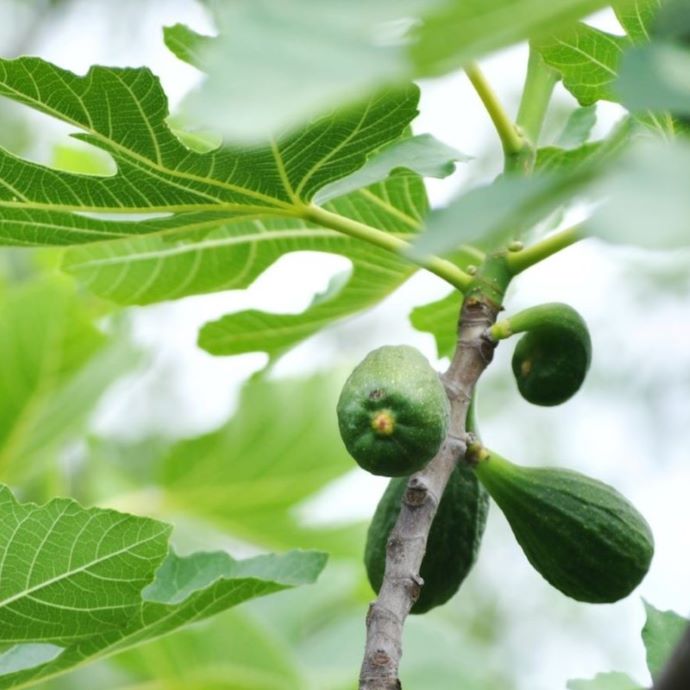Advice & Inspiration
Tomato Benefits: Should You Grow Your Own?

High in vitamins and minerals, low in calories and naturally sweet, tomatoes are one of the tastiest ways of getting your five a day. But like any popular food, they’ve been the subject of some pretty wild rumours in their time. When they were first introduced to Britain, it was believed that tomatoes were only edible when grown in hot countries. John Gerard was just saying what we were all thinking when he wrote in his 1597 Herball that tomato plants were ‘of ranke and stinking savour’ with ‘toxic’ leaves and stalks and ‘corrupt’ fruits.
Things went from bad to worse in the late 1700s, when there was a spate of poisonings amongst the European aristocracy and this new, exotic food was the prime suspect. Tomatoes were feared and vilified, not to mention nicknamed Poison Apples - however the true culprit, it emerged, was the pewter plates they were served from. As tomatoes are acidic, they were drawing up lead from the pewter, which was the true poison.
Tomatoes were still treated with suspicion until the 1800s, being grown only as ornamental plants here in the UK.
Fast forward to the age of clickbait, and you can find a world of bizarre tomato based articles online, ranging from them containing nicotine to turning you into a werewolf and causing or curing just about every ailment you can think of - most of which can safely be ignored. What we can all agree on though, is that tomatoes are a delicious part of a healthy diet. Can’t we? Let’s look at all the potential tomato benefits.
How healthy are tomatoes?
For a kick off, they’re 95% water, so that’s a good start! But what else do tomatoes contain?
Vitamins and minerals in tomatoes
Just one average tomato provides at least 15% of your daily vitamin C requirement, 5% of your vitamin A, 7% of your recommended vitamin K and 5% of your daily potassium. It also gives you a little protein, carbohydrate and fibre. The complete vitamin and mineral breakdown is pretty impressive, with one fruit containing approximately the following proportions of your recommended daily amounts.
Tomato vitamins
- Vitamin A: 5%
- Vitamin C: 15%
- Vitamin D: 4%
- Vitamin K: 7%
- Vitamin B1 (Thiamine): 3%
- Vitamin B2 (Riboflavin): 1%
- Vitamin B3 (Niacin): 4%
- Vitamin B5 (Panthothenic acid): 2%
- Vitamin B6 (Pyridoxine): 6%
- Folate: 4%
- Choline: 1%
Tomato minerals
- Calcium: 1%
- Iron: 3%
- Magnesium: 3%
- Potassium: 5%
- Phosphorus: 3%
- Zinc: 2%
- Copper: 7%
- Manganese: 5%
Plant compounds in tomatoes
Tomatoes contain several compounds with health benefits for us, most of them being found in greater concentrations in the tomato’s skin. Lycopene and chlorogenic acid are antioxidants, which protect the body against free radicals, the unstable molecules which damage DNA and cell membranes. Beta-carotene is the compound which our bodies convert to vitamin A and naringenin is a flavonoid which has been shown to have anti-inflammatory properties.
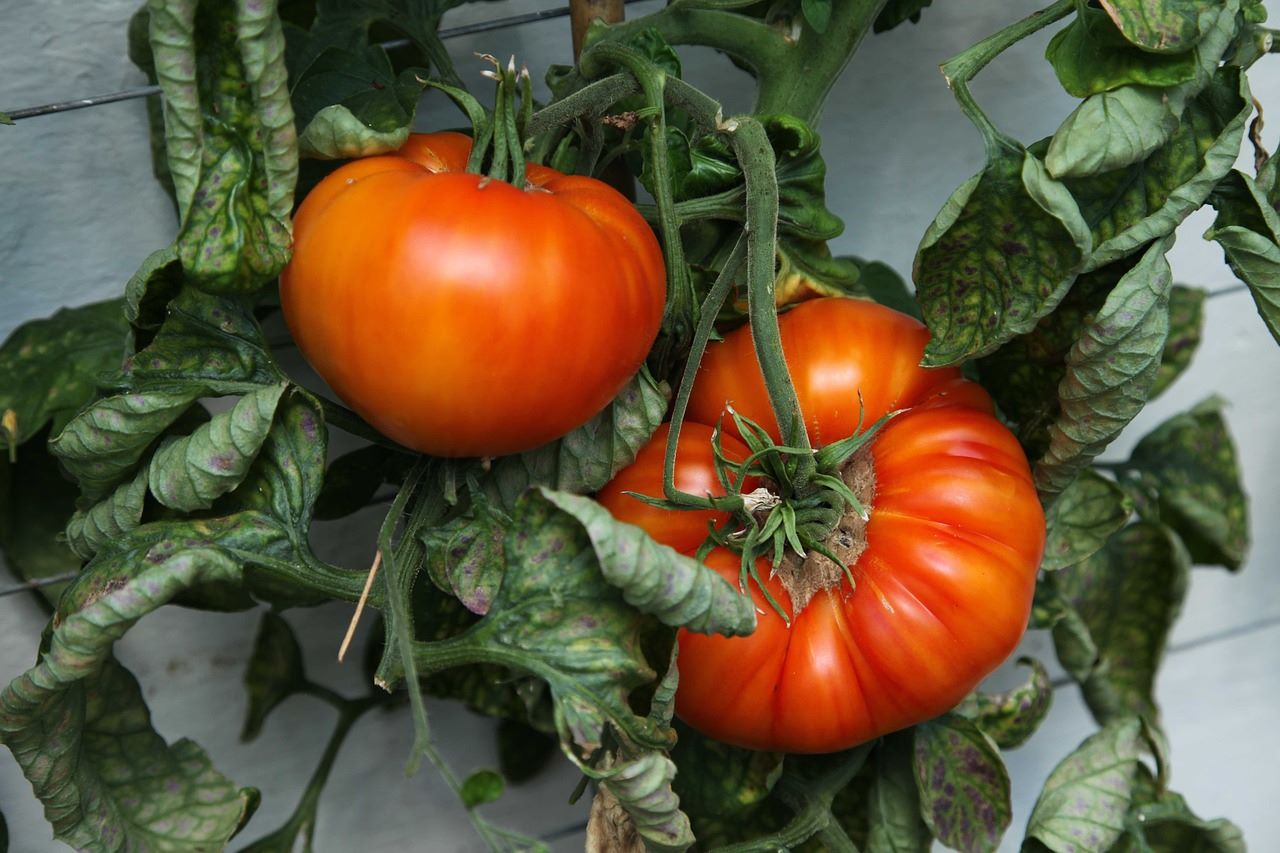
Tomato nutrition
The average tomato provides around 18-20 calories, so you could eat 200 of them in a day and still be within your recommended daily limits. I mean personally I might add some basil and a chunk of bread dipped in olive oil, but you do you.
Tomatoes are good for your skin
It seems that tomatoes can help you look as well as feel good. Vitamin A, as an antioxidant, has anti-aging benefits and can make your skin firmer, while vitamin C is needed for collagen synthesis, helping to heal wounds and improving elasticity. Beta-carotene also helps skin to resist UV rays that cause sunburn - but you’ll still need the factor 50: it’s not that powerful!
Are cooked tomatoes better for you?
There are claims that cooked tomatoes are healthier than raw ones as the cooking process concentrates or even increases their levels of the antioxidant lycopene. However, it also reduces the levels of vitamin C and flavonoids, so it’s swings and roundabouts really. The best way to make sure you get all the benefits of tomatoes is to eat both raw and cooked tomatoes regularly.
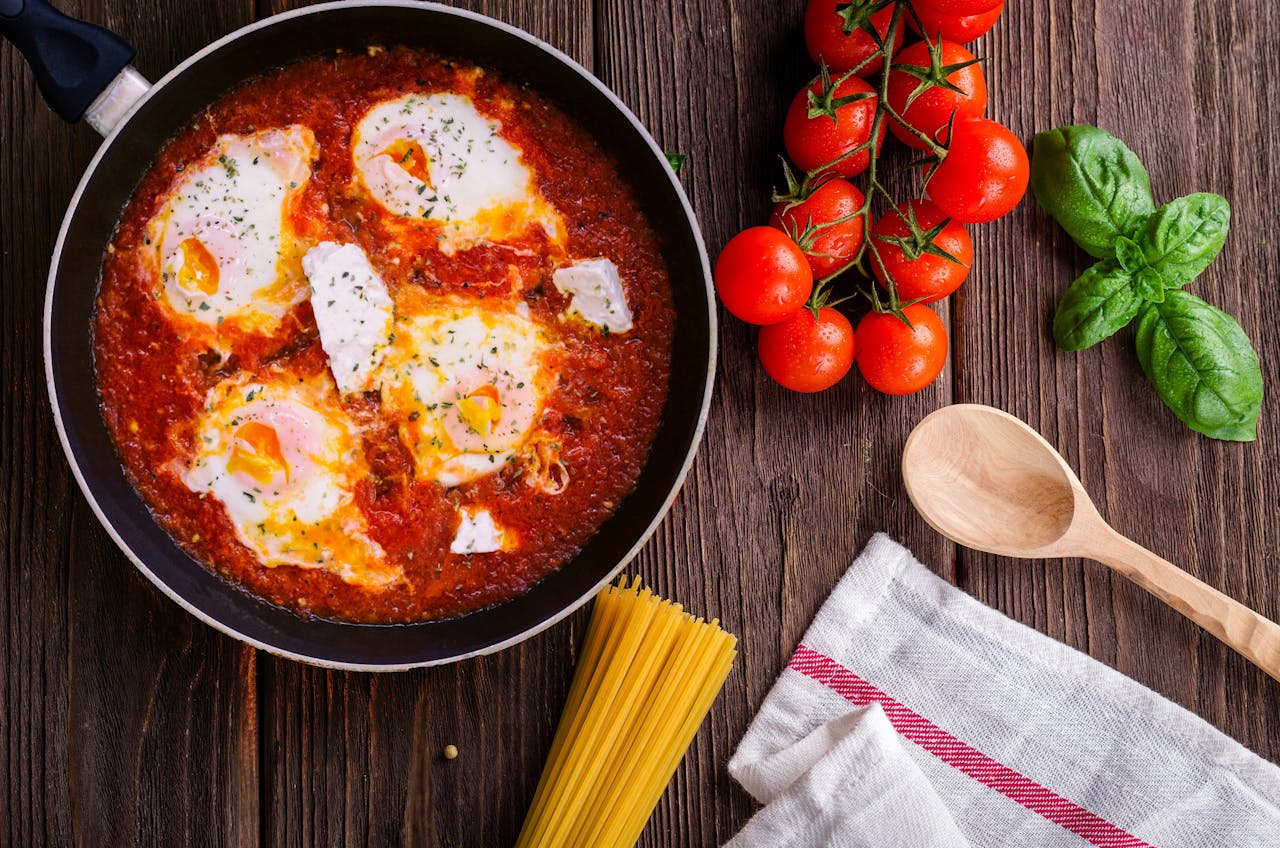
Can tomatoes prevent cancer?
This is one of many health claims that have been made about tomatoes, and studies have been carried out, but sadly it’s not a miracle cure. The studies looked at the chemical lycopene in relation to its effect on prostate cancer, but although lycopene is an antioxidant, no substantial evidence was found to support the claims. Cancer Research UK confirms this, but adds that a diet rich in any fruits and vegetables can help to lower the risk of some cancers.
Are tomatoes good for your heart?
According to the British Heart Foundation, our friend lycopene, the red pigment found in tomatoes, may actively protect against heart disease, reduce blood pressure and cholesterol. They do recommend eating as wide a variety as possible of fruit and vegetables though, not just tomatoes.
Elsewhere online, we see the oft-repeated statement that because tomatoes are low in cholesterol and salt, they’re specifically good for your heart. I mean it’s a salad item, of course it’s going to be better for your heart than a battered Mars bar. If omission were a virtue, then an old bus ticket (also low in cholesterol) would be good for you too, so take this one with a pinch of salt fresh herbs.
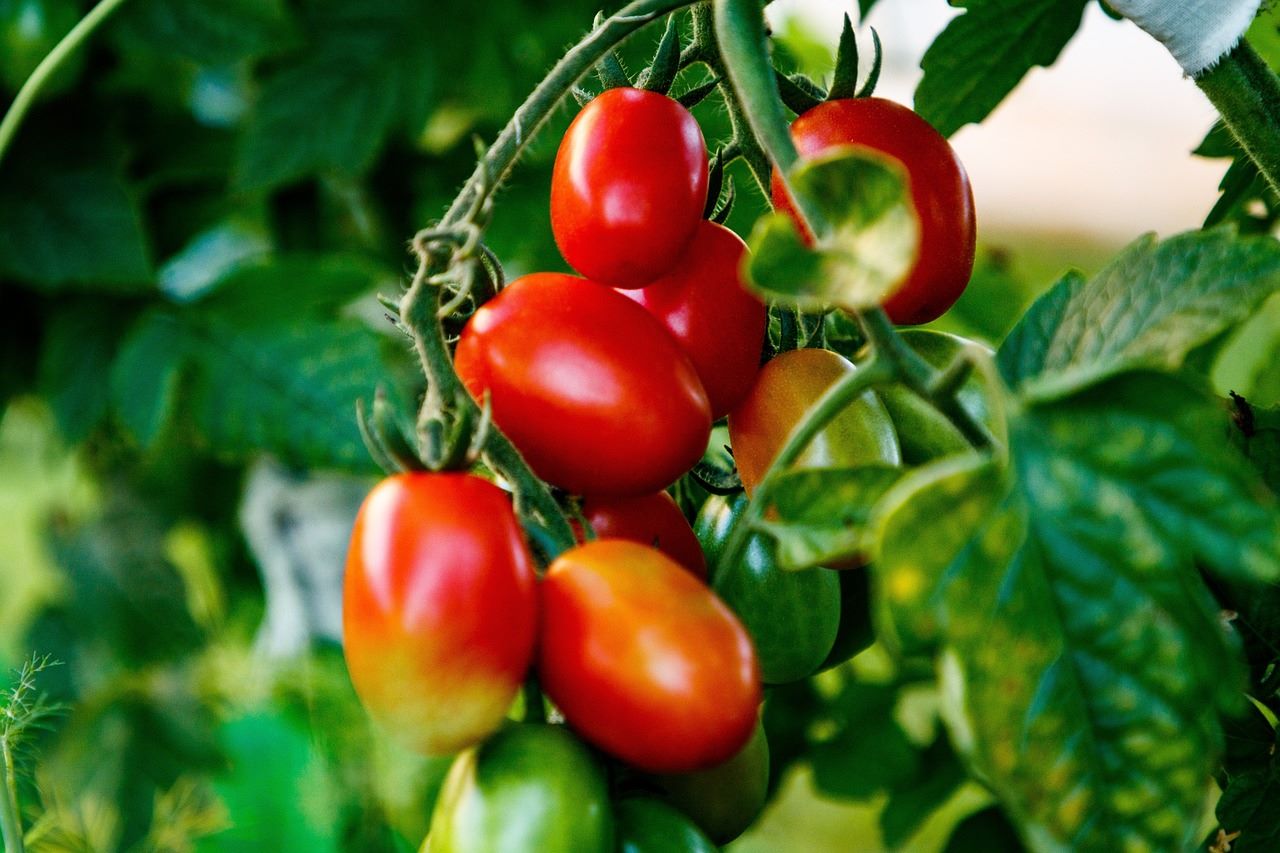
Can tomatoes be bad for you?
I googled so you don’t have to and I’m happy to report that there are no reported cases of death by tomato - however, some people do suffer from a tomato allergy. If your lips swell or tingle, you get a rash, breathing difficulties or a stomach upset after consuming tomatoes, you may be allergic to a chemical in the tomato called salicylate and you should seek medical advice.
Are tinned tomatoes healthy?
Tinned tomatoes are cooked, so although they lose a little of their vitamin content, they tend to have a similarly high nutritional value to tomatoes cooked at home. This makes them a great cupboard standby, especially during the months when homegrown tomatoes are hard to come by and you’d otherwise have to rely on imported fresh ones. Do check the label carefully though, as some tinned tomatoes have added sugar and salt.
What about tomato soup?
That comforting, nostalgic cream of tomato soup that made up roughly 40% of the 1980s childhood diet (the remaining 60 being crispy pancakes, microchips and Wham! bars) claims to provide one of your 5 a day. So is it healthy? With an impressive 89% tomatoes as the main ingredient, it certainly looks like that 5 a day claim stacks up. But what about the remaining 11%? That’s not so impressive, with around 5 teaspoons of sugar (although you can now get a reduced sugar version) and over a third of your recommended daily salt intake in each 400g tin.
But honestly, as long as you’re not scarfing three cans a day with a six pack of Monster Munch and washing it down with Um Bongo, this is a pretty benign - and not unhealthy - treat.
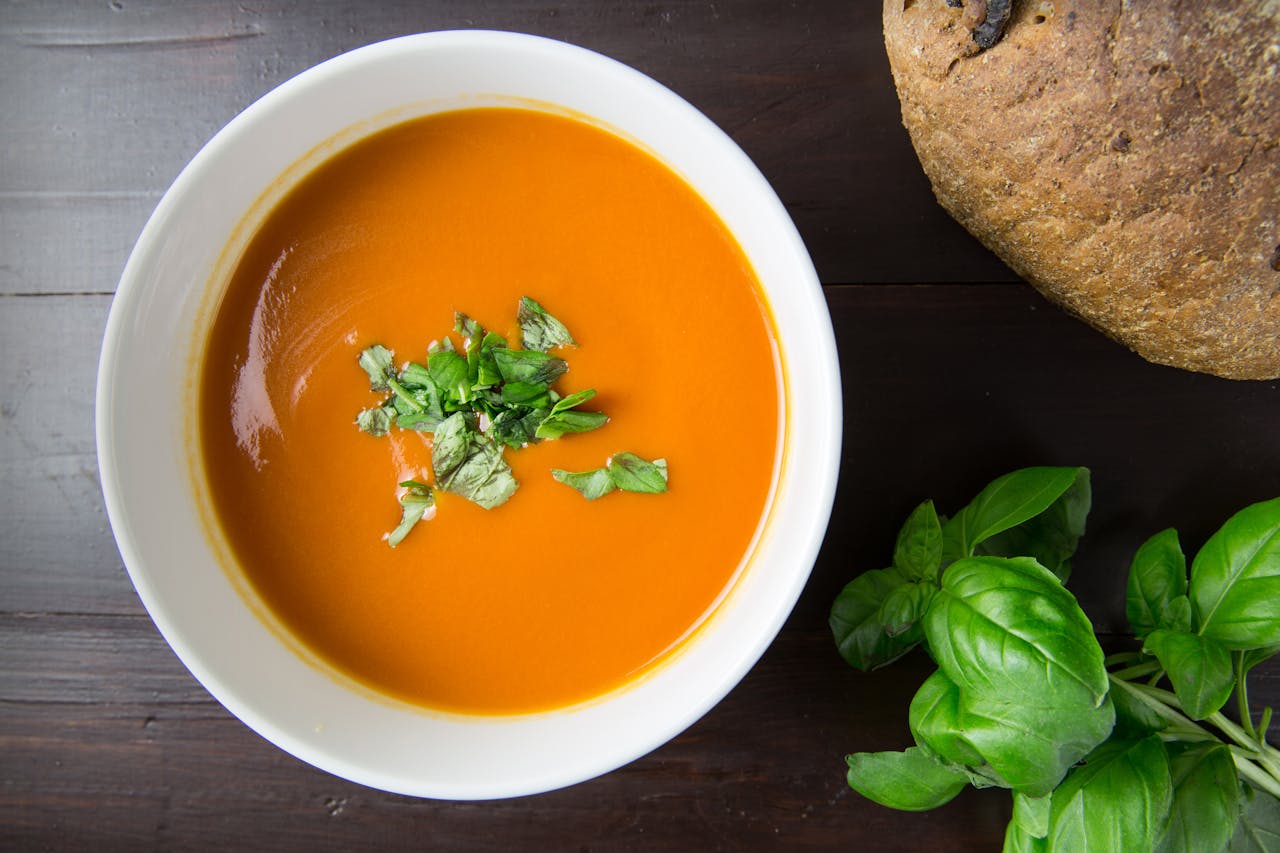
Are homegrown tomatoes healthier?
Homegrown tomatoes are tastier, nicer looking and just, I don’t know, more wholesome somehow. But are they better for you?
Ripe and red
The main difference between shop bought and homegrown tomatoes is that tomatoes you grow yourself have had time to ripen in the sun before they’re picked, so they’ve got time to develop all of those healthy vitamins and minerals, not to mention more sweetness as the sugars deepen naturally. Shop bought tomatoes are picked green and unripe, as they’ve got to last throughout the transportation process without going mushy before they hit the shelf. When they reach their destination, the tomatoes are ripened artificially, using ethylene gas.
Fresh from the back garden
The vitamins in your homegrown crops are at their highest concentration the moment you pick your perfect ripe tomato, and they get lower the longer it’s stored. This means that your homegrown tomatoes are substantially healthier than those that were flown in from Spain, stored in a warehouse and finally hit the shelf a week or two after they were harvested. Not to mention that import flights aren’t especially healthy for our atmosphere, either.
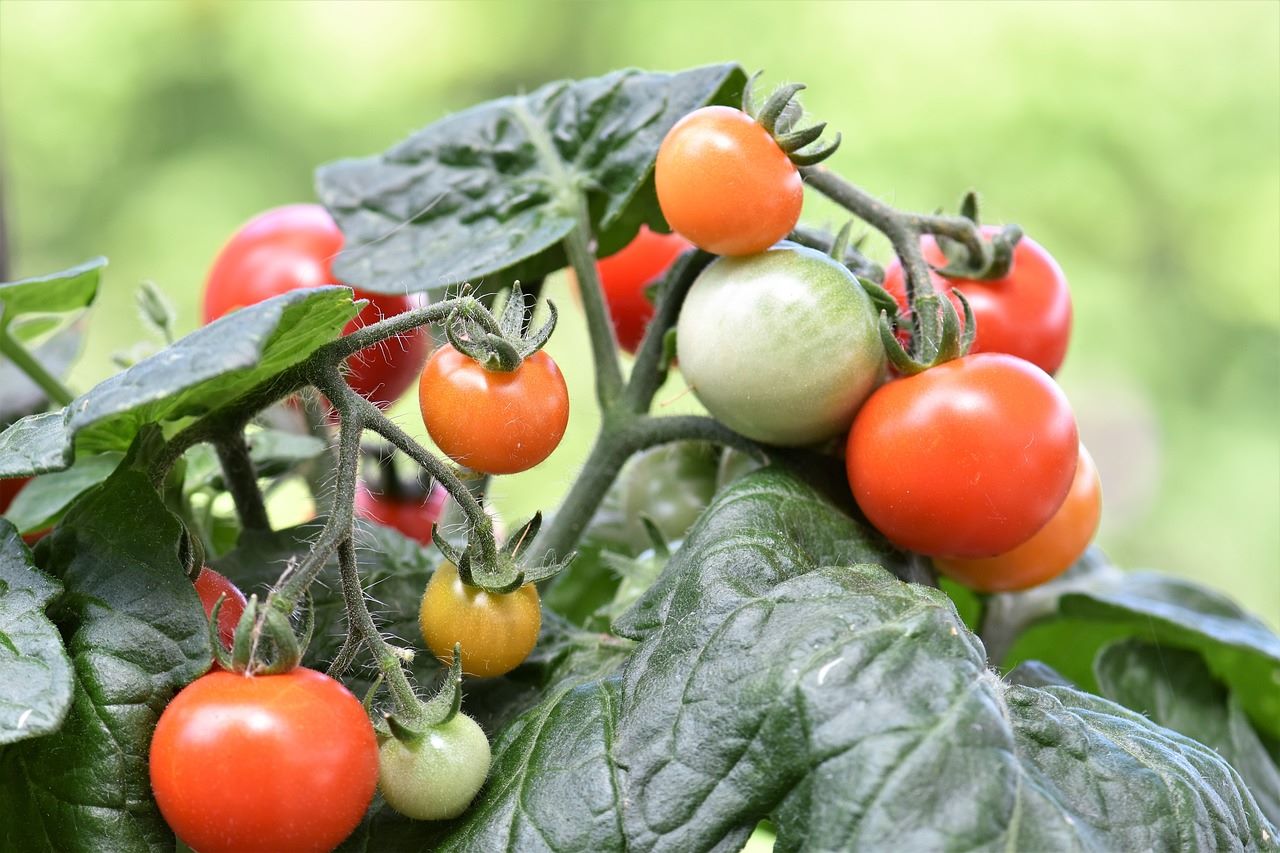
Pests = good?
Another difference is that you don’t use pesticides on your tomatoes at home (hopefully!). Commercially grown tomatoes are sprayed with chemical insecticides so you end up with a huge quantity of un-nibbled fruit. That’s great for production volume and profit, but not for human health, as the beneficial compounds in a tomato including lycopene, vitamins and sugars are increased when the plant has a stress response. What makes a tomato stressed? That would be pests and diseases.
Mmm… weedkiller
Tomatoes, due to their permeable skins, are at risk from absorbing chemical fertilisers and herbicides from commercial spraying. Even when we wash our produce, traces of these can end up in our bodies, reducing the health benefits of eating vegetables in the first place.
That’s not the case with your homegrown tomatoes - so go ahead and eat them straight off the plant.
It all just works
Growing a wide range of different tomatoes in your plot is better for wildlife, as different species are attracted to the plants. If you grow companion plants alongside your tomatoes, you can do even more for biodiversity, working alongside rather than against nature - plus you get herbs to eat with your tomatoes!
Fancy growing your own? Get all the tips and tricks you need in our Growers’ Guide.







